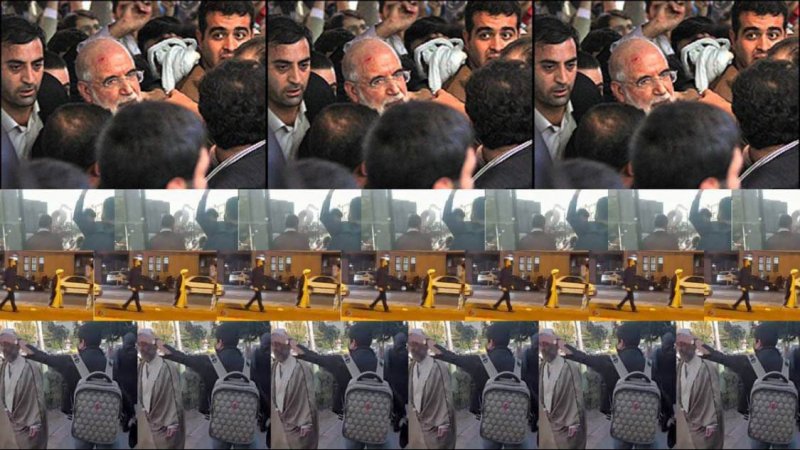Who started the act of knocking off clerics’ turbans?
These days, some teenagers, as a form of protest, are knocking off the turbans of clerics.
But it might be interesting to know that the history of this protest action goes back more than two decades. Previously, in 1999, radical conservative groups knocked off the turban of Abdullah Nouri, the then Minister of the Interior, as a form of confrontation.
In 2009, during Mehdi Karroubi’s presence at the Press Exhibition, we witnessed the same protest behavior towards the then-presidential candidate.

